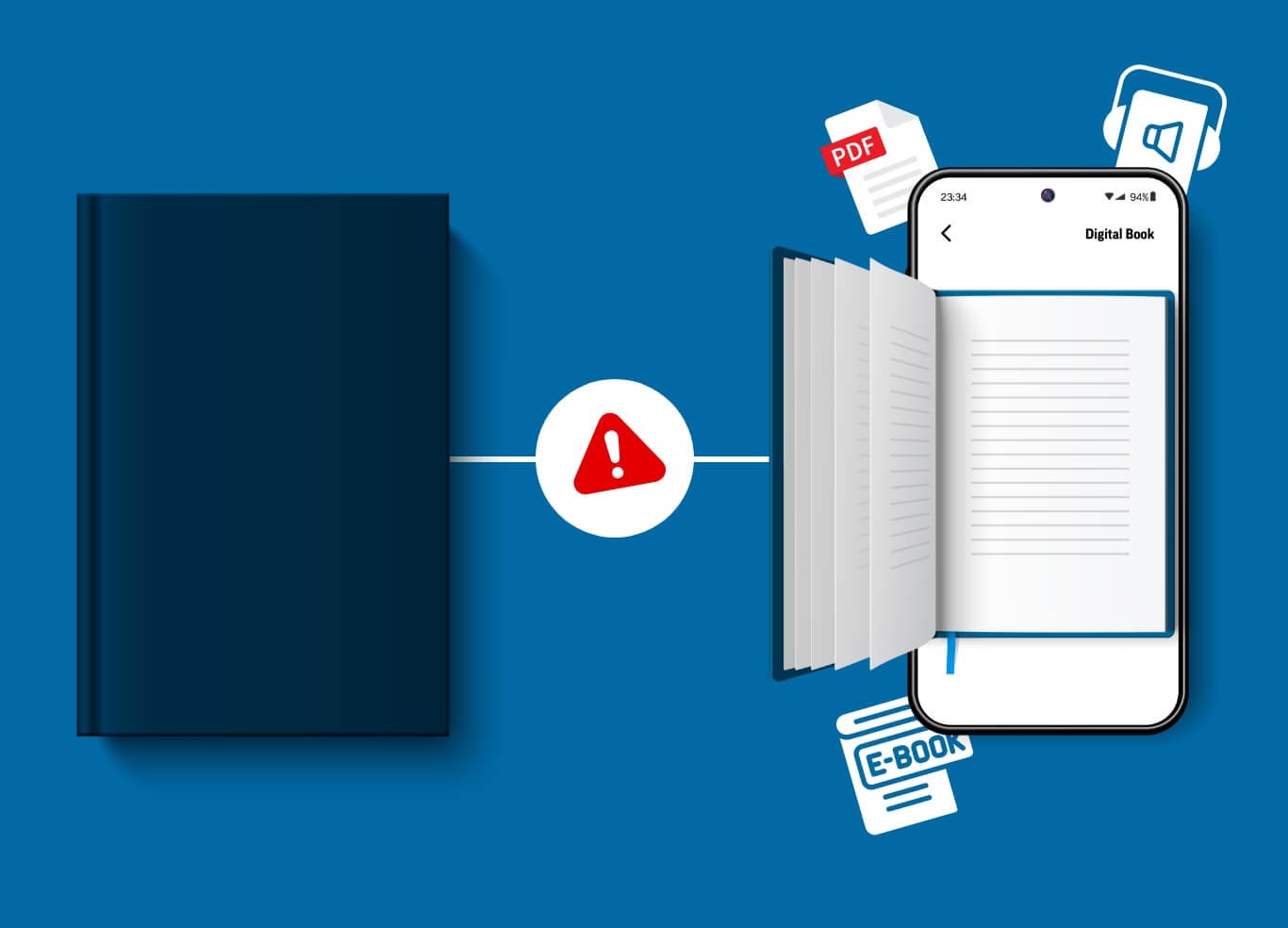The evolution in the business landscape has not only changed the working approach but has also introduced new methodologies. Traditionally, businesses from different sectors used to manually manage their entire operations. However, it is nearly impossible for professionals to continue the traditional working approach. Due to time-consuming and inefficient results, complex processes, and more, conventional methods in today’s digital era lead to insignificant solutions and outcomes. As a matter of fact, in the modern working realm, data is one of the significant resources that help businesses to grow, excel, and even reduce costs.
Almost every industry of the economy utilizes the power of data in various ways to get the most out of the information and make informed decisions. This allows businesses to stay one step ahead and thrive in the highly competitive market. As mentioned, every business sector benefits from data; the logistics sector in the economy has also adopted the supreme use of data with the help of data digitization services.
In the vast economic sector, data has always been a source of information; however, in the digital modern realm, managing the physical data is quite essential. Moreover, data digitization enables professionals to access information quickly, share it easily, and keep it safe. In the rapidly expanding business landscape, the logistics sector has adopted data-driven solutions that have transformed how logistics companies operate. Moreover, the industry is large and carries a variety of documents in physical format, which is risky to store due to numerous factors such as paper deterioration, natural calamity, loss of information, and the time-consuming process of managing and finding the required information.
All this slows down the logistics operations and delays the transportation of goods. Therefore, implementing smart logistics here becomes a beneficial process, allowing professionals to access data quickly, accelerate the crucial process, track the transportation of goods, improve document management, facilitate easy transfers, and more.
Logistics processes and operations are complex, and with evolving technology, continuing the manual process increases the scope of complexity as well as monetary losses. As the world advances, logistics data digitization solutions are proving to be one of the most effective and beneficial ways to ensure smooth operations. Let’s briefly discuss digital transformation logistics operations and how it has impacted the industry.
Enhance Logistics Business with Persistent Data Digitization Services
Impact of Digital Transformation in Logistics
Digital transformation in the world has changed the dynamics of working, living, processing, and managing multiple operations. It has enhanced and simplified the task, which consumes less time and improves productivity while offering accurate results. The concept of data digitization brings a variety of benefits in the digital wave. Moreover, it is no longer an option but has become a cornerstone of every business sector.
Similarly, in the logistics industry, digital transformation has improved and reshaped operations, from optimizing routes to predicting demands, enhancing document scanning and indexing, and streamlining workflow, among other benefits. In the logistics industry, a variety of data is generated. Digital transformation helps manage complex frameworks without introducing complexity into the process. For example, real-time tracking of shipments enables professionals to monitor the route and the approximate delivery time of goods at the location.
The data enables analysis, prediction of potential days, and minimization of delays, among other benefits. This enhances the customer experience and operational efficiency as well. Typically, there is a variety of data in the logistics firms, some of which are;
- Customer data:- for preferences and service needs
- Demand data:- for future needs, manage stock, and acute planning
- Route data:- for efficient delivery paths, cutting fuel cost, and timely
- Shipping data:- for dates, delivery time, location, delivery deadlines, and cost
- Inventory data:- for monitoring stocks, preventing overstocking, and shortages
These are the types of data typically found in document format, which is essential to digitize and process for acute management. Document processing services for logistics companies help manage a crucial set of documents, appropriately structuring them for quick access to information or easy transfers.
Streamlining operations and improving the decision-making process is achieved through data document digitization. In fact, the digitization aspect in logistics firms helps eliminate the manual process that takes time and has a wide range of errors that can lead to significant costs. The digitally advanced logistics sector brings a variety of benefits that help to improve the overall business performance.
- Increases efficiency and productivity
- Facilities collaboration
- Enhanced visibility and control
- Better customer experience
- Lower cost
- Faster process
The benefits of digital transformation can be never-ending. Since it has drastically changed the world, it is evident to digitize data as well. Before data digitization, logistics companies struggled with massive amounts of paperwork that were crucial. It was risky, time-consuming, prone to errors, and complex to track the shipment, among other challenges.
Additionally, logistics companies ensure the timely delivery of goods to provide an efficient customer experience. This calls for logistics innovation with the digitization of existing documents, other sets of data, improved business operations, and more. Nonetheless, this isn’t the only goal of logistics digitalization, but it plays a significant role.
Significant Role of Data Digitization Solutions in Logistics
As previously discussed, the shift from paper to digital transformation can be highly beneficial. Although the manual traditional approach cannot provide the desired outcomes or benefits in this digital era. Logistics companies need to adopt digital methods and manage the large volume of data efficiently. The logistics sector can face significant challenges due to not adopting digitization, some of the following are;
- Inefficient supply chain management leading to delays, overcost, and dissatisfaction
- Poor coordination and lack of process management
- Creates inefficiencies, slows down operations, and causes operational disruptions
- Consumes more time and effort
- Lack of access to real-time data impacts the decision-making process
These challenges underscore the importance of data digitization in logistics, which helps transform the industry in the new age. Moreover, the modernized era enables businesses to streamline processes, inform decisions, drive revenue growth, enhance customer experience, and more.
From inventory management to warehouse management to tracking shipment of goods, digital transformation in logistics helps logistics firms to grow. The impact of digitization also helps in reducing costs from delays and labour. Implementing smart logistics processes with technologies also plays a significant role. Let’s look deeply into technologies that will help in the logistics sector’s growth.
Latest Technologies Driving the Change in Logistics
The digitalization of logistics is powered by a suite of interconnected technologies that are creating smarter, more agile supply chains, resulting in an accurate process in transportation. Managing large datasets is a key pillar of a logistics company’s success. Another crucial factor is adopting the latest technology, which enables companies to stay ahead in the competition and deliver the most desired results.
As digital transformation is a game changer for the logistics sector, implementing key technologies that drive changes also brings effective results with ease in the process and is less time-consuming. Advanced software or tech helps professionals avoid unnecessary errors. The following are some of the key technologies that help enhance the digital reality of the logistics industry.
Emerging Technologies in Logistics Sector
Demand Forecasting
Route Optimization
Cloud Computing
Blockchain
Internet of Things (IoT)
Artificial Intelligence (AI) and Machine Learning (ML)
- Internet of Things (IoT): IoT devices, such as GPS trackers, smart sensors, and RFID tags, provide real-time visibility into the location, condition, and status of goods. For example, temperature sensors in a shipping container can alert a logistics manager if a shipment of perishable goods is at risk, enabling them to take corrective action before the cargo is ruined. This constant stream of data is the foundation of the digital supply chain, and digitization solutions can help to transfer the information quickly.
- Artificial Intelligence (AI) and Machine Learning (ML): AI and ML are the brains of the digital supply chain. They analyze the vast amounts of data collected by IoT devices to provide predictive insights and automate complex decisions.
- Route Optimization: AI algorithms can analyze traffic, weather, and delivery schedules to calculate the most efficient routes, reducing fuel consumption and delivery times.
- Demand Forecasting: ML models can predict future demand based on historical data, market trends, and seasonal factors, allowing for more accurate inventory management and a reduction in stockouts or overstocking.
- Cloud Computing: The cloud provides a centralized, scalable platform for storing and processing the massive amounts of data generated by digital logistics. It enables seamless collaboration and information sharing among all stakeholders—from suppliers and manufacturers to carriers and customers.
- Blockchain: This distributed ledger technology ensures secure and transparent transactions and record-keeping. In logistics, it can be used to create an immutable record of a shipment’s journey, making it easier to track and verify the authenticity of products and reduce fraud.
Embracing the technologies mentioned above can help stay ahead in the competition. While adopting digitalization in logistics, these technologies allow processes to run faster and save crucial time. This results in enhanced customer experience and timely delivery of goods. Moreover, the benefits of data document digitization are not limited to this. Delve deeper to understand the advantages of digitalizing logistics.
Transformative Benefits of Digitalization in Logistics
In today’s competitive business landscape, staying ahead and delivering a rich customer experience is crucial. As data is the primary resource, it is essential to manage and streamline it to extract the right insights. Data digitization requires the latest technology that reduces the scope of errors, maximizes process outcome, saves time, and facilitates the core operational activity. Therefore, it is vital to use cutting-edge technology to reap maximum benefits from digitized data. The integration of these technologies is not just an incremental improvement; it’s a fundamental shift that delivers significant competitive advantages. The following are some of the key benefits;
Key Advantages of Data Digitization in Logistics Sector
Increased Efficiency and Cost Reduction
Improved Customer Experience
Enhanced Visibility and Transparency
Greater Agility and Resilience
Sustainability and Environmental Responsibility
- Increased Efficiency and Cost Reduction
Digitalization streamlines operations by automating tasks that were once manual and time-consuming. AI-driven route optimization, automated inventory management, and paperless documentation all contribute to a leaner, more agile operation. This leads to lower operational costs, reduced fuel consumption, and fewer errors, directly impacting the bottom line. - Enhanced Visibility and Transparency
One of the most significant benefits is the creation of a single, unified view of the supply chain. With real-time data from IoT sensors and a shared ledger from blockchain, all stakeholders—from manufacturers to customers—have access to the same up-to-date information. This transparency enables quicker problem-solving, better collaboration, and a more proactive approach to logistics management.
- Improved Customer Experience
In today’s market, customers expect fast, reliable, and transparent delivery. Digitalization directly addresses this by providing accurate delivery estimates and real-time tracking, empowering customers with information. This heightened level of service builds brand loyalty and a competitive edge. - Greater Agility and Resilience
A digital supply chain is a more resilient supply chain. Predictive analytics can identify potential disruptions—like a port closure or a natural disaster—before they happen. This allows companies to reroute shipments, adjust inventory, and communicate with partners proactively, minimizing the impact of unforeseen events. This agility is a crucial defense against the volatility of the global market. - Sustainability and Environmental Responsibility
Digitalization enables a more sustainable approach to logistics. By optimizing routes to reduce mileage and fuel consumption, companies can significantly lower their carbon footprint. Furthermore, predictive maintenance reduces waste and extends the life of vehicles and equipment.
The list of advantages is extensive; however, the discussions primarily highlight it as a game changer for the logistics sector. These benefits enable companies to achieve enhanced outcomes, informed decisions, and harness the power of data in digital format at its best.
Furthermore, the benefits of digitalization underscore the importance of its implementation in the logistics and transportation sector, leading to improved tracking and processes. As the logistics firm produces and collects a variety of datasets, one of the most ideal and advantageous solutions is to outsource data digitization.
A third-party partner helps to bring accurate results while professionals can focus on the core operations. Uniquesdata is a leading data digitization company in India, with a team of professionals utilizing cutting-edge technology to provide digitization services across various sectors.
In a Nutshell
Logistics is one of the primary sectors that allows seamless transportation of goods from one place to another. From airways to roadways to waterways, logistics companies generate a variety of data that plays a crucial role in growth. Data digitization services ensure the management of large volumes of data and bring enhanced volume.



